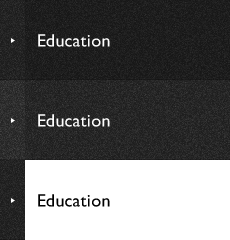Students acquire the latest specialized knowledge in their major research field through research seminars and the “PhD Qualifying Presentation,” while developing a wide range of outstanding professional skills and high ethical standards in the field of science and technology for health care and medicine. The program cultivates leadership, intercultural, and communication skills through courses such as “Teaching Methods,” “International Presentation,” and liberal arts courses, while developing the skills necessary to pursue their desired careers through “International Internship” and “Practical Training at Companies.” Through doctoral thesis research, students conduct world-class research and develop outstanding creativity, problem-setting, and problem-solving skills that empower them to lead the global community.
-
- Research Seminars
- Seminars and thesis readings are conducted in accordance with doctoral thesis research to cultivate the ability to define research objectives and formulate a research plan. In addition, students are provided opportunities to present and report on their research plans and results, thereby developing their presentation skills. Through cutting-edge, interdisciplinary research in the field of science and technology for health care and medicine, students will acquire world-class expertise and skills necessary to complete a doctoral thesis.
-
- Core Courses
- Students will gain advanced knowledge and skills in areas such as human science, medical and health sciences, bioethics, and the human environment, all of which are relevant to science and technology for health care and medicine. Additionally, they will cultivate leadership, liberal arts, language, and communication skills, preparing them to be internationally competitive individuals.
-
- Medical and Dental Sciences
- Based on systematic courses that integrate multiple fields of medicine, life science and technology, dentistry, and health sciences, these courses cultivate broad knowledge and high ethical standards concerning human health and welfare through interdisciplinary collaboration in the life science fields.
*2Indicates the standard model where the Doctoral Program is completed in three years.
. Any information published on this site will be valid in relation to Science Tokyo.


